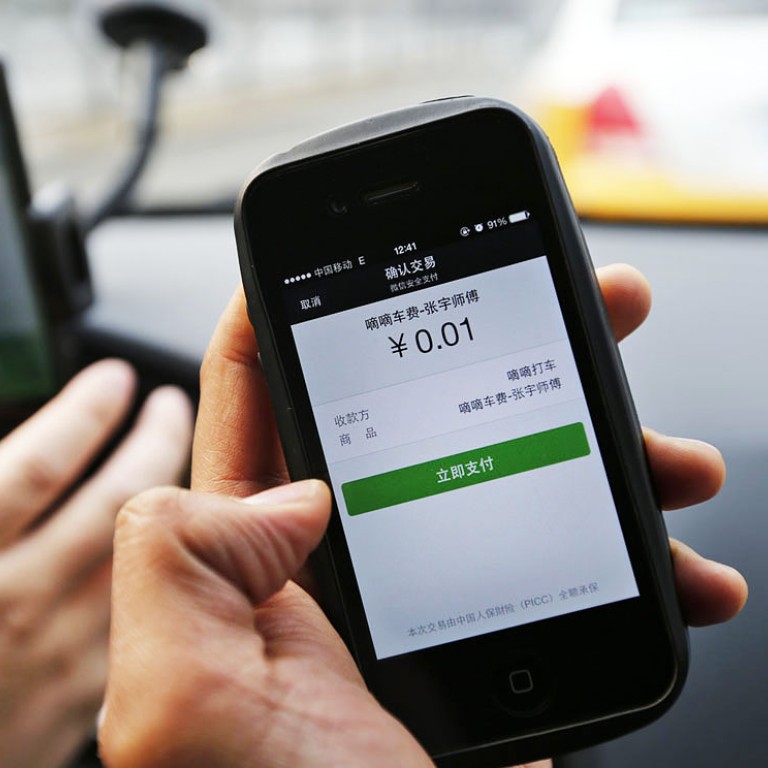
Chinese market for taxi booking apps gets more congested
Hangzhou-based Kuaidi Technology is launching a luxury car service to challenge that of US venture capital darling Uber, which expanded into Beijing and Hong Kong last month.
Hangzhou-based Kuaidi Technology is launching a luxury car service to challenge that of US venture capital darling Uber, which expanded into Beijing and Hong Kong last month.

Both sought to attract drivers and passengers with subsidies and cash rebates, with Didi alone spending close to US$225 million in three months, according to figures released by the company.
Competition between the two apps became so fierce that the authorities stepped in after passengers in many cities complained that taxi drivers were ignoring street hails in favour of far more lucrative app customers.
In Suzhou, Jiangsu province, drivers were banned from using the apps altogether, while in Shanghai, the authorities limited their use during rush hour and said drivers who refused to pick up normal passengers could be fined.
Regulatory intervention aside, the aggressive push appears to have paid off for both companies. Kuaidi and Didi had boosted their market shares to 51.6 per cent and 45.3 per cent respectively, a recent Analysys International report showed.
Kuaidi has now turned its sights to the luxury end of the market, where Uber and rival Yongche previously dominated. Unlike taxi booking apps, Uber and Yongche connect users with private hire cars, more similar to chauffeured limousines.
"We operate under a similar model as Uber does in China," Kuaidi chief executive Dexter Lu told Bloomberg last month.
The firm's new app, Yihao Zhuanche, will allow users to book BMW and Mercedes vehicles in eight cities, mostly working with chauffeur companies to ferry passengers to five-star hotels and airports, for which drivers can earn a commission of 20 to 25 per cent of the trip cost.
The economy option of its service costs 2.90 yuan (HK$3.60) per kilometre after a 15 yuan flat fee, only slightly more expensive than UberX, the US company's cheapest offering.
"Uber's aggressive steps are almost certain to be followed by similar copycat moves by other players, resulting in fierce new competition and chaos," Doug Young, a professor of financial journalism at Shanghai's Fudan University, wrote last month.
Uber, which launched in Shanghai in February before expanding to Shenzhen and Guangzhou, recently spread to Beijing and is believed to target a further 12 cities.
"We're ready to expand much wider," said Allen Penn, Uber's head of Asia. He dismissed suggestions that Yihao Zhuanche could affect Uber's business on the mainland, adding: "Growth we're seeing now is as fast as it's ever been."
Penn was equally bullish about how the company would be affected by increased regulation. "Before we enter a market, we look to understand the regulations. We've not seen anything during our time operating in China which suggests any issues with our model," he said.
While Uber, which was recently valued at US$18.2 billion, may be unconcerned by the threat posed by Kuaidi, mainland firms are proving to be a common headache for the US company.
In June, Yongche said it was expanding to Uber's strongholds in New York and San Francisco, targeting the large Chinese business and leisure travel market.
"We will have Chinese-speaking drivers in the US and other places to make it seamless and stress-free," Yongche chief executive Herman Zhou said.
The firm reportedly plans to expand to other places popular with Chinese travellers, including Los Angeles, London, Frankfurt and Tokyo.
